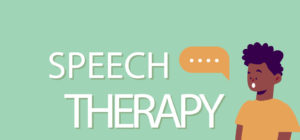Stuttering is one of the most common speech problems around, affecting approximately one per cent of adults and five per cent of children. However, not a lot is known about why this happens in the first place. This may be changing, as new research has uncovered activity in the brain that could be responsible for this speech disorder.
Scientists from the Max Planck Institute for Human Cognitive and Brain Sciences in Leipzig and the University Medical Center Göttingen have been performing MRI scans on people who stutter, and have uncovered activity in the right hemisphere of the brain that seems to be linked to speech disorders.
The area, known as the right inferior frontal gyrus, is partly responsible for putting a stop to actions. For example, when you’re speaking and end your sentence, it is this area of the brain that would be responsible for stopping your speech. In stutterers, this region is overactive, sending stop signals as soon as sufferers begin to talk.
This in turn affects other areas of the brain. The left inferior frontal gyrus, which is responsible for the planning of how a person is going to speak, and the left motor cortex, which deals with the actual movements performed while speaking, are inhibited by the overactivity in the right side of the brain.
Nicole Neef, neuroscientist at the Max Planck Institute and author of the study, explained: “If this region is overactive, it hinders other brain areas that are involved in the initiation and termination of movements. In people who stutter, the brain regions that are responsible for speech movements are particularly affected.”
In particular, the researchers found a particular fibre tract in the brain that was stronger in stutterers than in the general population. In fact, the stronger this tract was, the more severe the participants’ stutters appeared to be. This could be the key to more effective speech therapy for stuttering.
Article: MediPlacements




